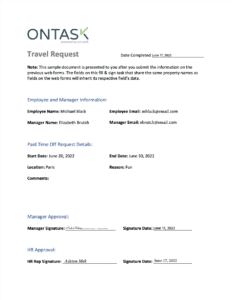Blog
Why Your Law Firm Needs Legal Contract Automation

If you’re struggling to manage the contract process in your law firm, you’re not alone.
As law firms grow and scale, contract volumes quickly exceed your legal team’s capacity for manual negotiation and contract reviews. This results in a delayed sales process that frustrates your team and clients, creating potential legal risks, and ultimately slowing down growth.
Smart law firms use contract automation solutions to make the contract management process more efficient, increase employee productivity, and create up to 82% in time savings.
This guide covers everything you need to know about legal contract automation, its benefits, and how to select the right contract automation software for your law firm.
What is Legal Contract Automation?

Legal contract automation is an integrated process that uses software to auto-generate contracts while standardizing and unifying the stages and tasks within your process.
Contract automation uses key inputs and data from your business’ CRM or internal systems to streamline the contract process and move contracts quickly from one step to the next. That way, legal and non-legal teams in your law firm can self-serve on routine, repetitive legal documents.
Law firms use contract automation software to free their employees’ time so they can focus on more strategic work and improve productivity. These automation tools create, store, and manage all contracts promptly and efficiently.
Law firms can automate anything from assigning non-billable work, to sending email reminders, document generation and management and everything in between — all while reducing errors and overhead costs.
Let’s review the difference between manual and automated contract processes to see why law firms are switching.
Difference with Manual Contract Process
Legal professionals and law firms manage large volumes of contracts and agreements each day.
Those still relying on traditional, cumbersome, manual processes can quickly become overwhelmed, leaving lots of room for human error and misplaced documents.
Picture it. One lawyer finds and fills in the contract template fields, then emails it to the legal team for review. Then they send the reviewed document to a counterparty, who may then comment and mark up the document in a different file format before emailing it back.
The result? Constant back-and-forth email chains, with inefficiently tracked contract negotiations and loss of contract visibility along the way.
Eventually, all parties sign the document either using a wet signature in a scanning or signing process or an eSignature solution. Once signed, the document may be sent to relevant stakeholders and parties, and probably be stored on Google drive.
In such cases, the contracts end up in multiple versions on different personal desktops and shared drives, or printed copies stored in physical filing cabinets.
This manual, efficient contract automation process causes friction and bottlenecks for law firms, including:
- Eating into the time employees need to handle high-value, strategic work
- Duplicating work in different legal processes and using multiple tools
- Wasting time that would otherwise have been spent capturing other opportunities, getting offers out quickly, or closing deals
- Delivering a poor client and counterparty experience
- Increasing version control risks as people don’t get to use the most up-to-date version of the contract template
- Reducing data integrity through documents that are so varied and not standardized, making the firm’s paperwork look amateurish
If your law firm is experiencing these bottlenecks, it’s time to consider contract automation.
How Law Firms Use Legal Contract Automation

Law firms value time, so they turn to legal contract automation to automate processes and improve efficiency. Using innovative technology that does the rote and mundane tasks helps legal teams get more time to focus on high-value activities that tangibly move the needle, giving your firm a competitive edge.
While not all hours are billable, lawyers still use their non-fee earning time checking emails, scheduling upcoming appointments, or onboarding new clients. These repetitive, routine tasks can consume hours from their work week, which could be done in a fraction of the time.
Automating these and other business processes in your law firms frees up your legal team to decide how they’ll spend their extra few hours each week. For instance, they could network more, build new relationships, and follow up with potential leads.
Let’s review the benefits of contract automation for your law firm.
Benefits of Legal Contract Automation
With current contract automation tools, law firms can automate a significant portion of their business processes, helping them service more clients and attract new business more efficiently.
Let’s look at the key benefits of using a contract automation platform below.
Increase Collaboration
Automation speeds up the contract review and negotiation process by providing collaboration tools for multiple users on your team. For instance, cloud-based document storage allows people to edit documents simultaneously while showing who made the changes and when.
Plus, you can add comments or tasks and get detailed version control, and more to improve contract visibility. That way, everyone is on the same page, and contracts get done faster.
Some tools come with AI-assisted negotiation capabilities and notify users via email or Slack so they can take action and complete reviews faster, keeping your document workflows moving.
Prevent Risks
Contract automation software also helps legal professionals prevent errors and manage risks by automatically filling in information associated with their client or the matter at hand.
These tools help your law firm keep track of risks while updating you on project progress, deadlines, regulations, and compliance rules.
If you manage multiple clients or stakeholders, contract automation can eradicate human errors while minimizing the administrative effort of ensuring error-free contracts.
Automate Processes
Automating processes means less time wasted on manual, repetitive tasks. Contract automation software provides contract templates, eliminating the rewriting or copy-and-pasting for similar contract draft types.
You get an auto-generated template with autofill capabilities to help you complete your contract and email it for review or signing. Templates also give you full control over the wording of key provisions and branding, which can make or break your firm’s reputation and relationship with clients and prospects.
Enhanced Efficiency
Your legal team must focus on more important or exciting tasks—not rote, repetitive legal drafting or letter reviewing work.
Automating such tasks empowers you to focus on high-value, big-picture issues or professional development, making them unquestionably more productive. It streamlines business processes, so lawyers spend less time on admin and paperwork and more on high-value, strategic, commercial work they’re trained for.
Increase Profits
Many legal firms often determine pricing by spending time on a particular job. This can be unpleasant for clients who prefer fixed rates per project.
Automation reduces the time spent drafting documents, making it possible to charge a fixed fee for the client’s benefit and still make a profit as you get time to serve more clients.
Automating low-value work also helps you pass on cost savings to your client, giving them a better experience dealing with your team.
Quality and Accuracy
Errors can be costly to any business. Law firms, in particular, have to be meticulous when reviewing documents for errors. Not only is this tedious, but it’s also time-consuming, and some errors may fall through the cracks—especially for long drafts.
And, it’s not enough to copy and paste data from one document to another, which results in more errors and typos, impacting your compliance and risk management efforts.
Automation checks for errors during template creation, guaranteeing document generation with a certain level of perfection—even if they’re not proofread.
How to Choose the Right Legal Automation Software

With a contract automation platform, you can create custom workflows that allow your team to generate their own contracts without involving the legal team every time.
If you want to implement contract automation in your law firm, review contract management systems based on the following features:
Create Contract Templates
Employees waste time on contract creation. A legal automation tool comes with contract templates, which automatically generate based on the data you feed them.
You can customize these templates with engaging branding so your clients enjoy a seamless, uniform experience every time. Templates also help you create contracts in a few clicks and send them for review within seconds.
This standardized process eliminates uncertainty and minimizes risk and non-compliance.
Use Q&A Flow
A Q&A flow helps your team enter contract metadata, such as dates, names, values, addresses, and more, into smart fields, ensuring they’re trackable and searchable. This is especially useful for non-disclosure agreements and other standardized contracts.
Your team can define a Q&A flow to use, and as they go through it, their answers populate the fields with the correct information, eliminating errors and empty fields.
Automated Approval
With automated approval workflows, your legal or leadership team may not have to approve every single contract document. This speeds up the process, ensuring contracts are reviewed and approved without keeping everyone waiting for sign-off every time.
Contract automation platforms should provide automated approval workflows that outline the order of approving the contract with notifications along the way. That way, your team is assured that no flawed contracts slip through the cracks, which could lead to more risk and non-compliance.
Security and Compliance
Contract automation also helps law firms ensure compliance with industry best practices and legal requirements, shielding them from costly penalties and litigation.
Everyone on your team stays legally compliant, as these tools ensure optimum security for your legal documents. The files are also only accessible to authorized personnel and kept secure during transfers among team members.
Centralized Documentation
With an automated contract management workflow, your documents are kept centralized, and accessible to other team members. This means you can collaborate better, review documents together anytime from anywhere, and track progress, versions, or changes.
Improve Client Intake
By taking the hard work out of your contract workflows, automation tools simplify your approval processes, speed up communications, and make singing easier.
Your clients can fill out and sign contracts digitally without having to print, scan, and email completed forms back to you. This improves your customer journey, making it more satisfying for your clients.
Why Should Law Firms Automate Their Contracts?
Many significant benefits drive law firms to automate their contract management systems. Besides eliminating human error and bringing time and cost savings, they free up the time legal professionals would spend on repetitive, mundane activities that don’t add value.
Automation also boosts the client experience by ensuring a seamless, flawless contract creation, review, and approval process that can be easily tracked and repeated with stunning results.
And law firms have greater control, better contract visibility, and shorter time to revenue, all of which increase their profitability.
Docubee: Legal Automation for your Law Firm
Isn’t it obvious how much legal contract automation software can do for your law firm?
Lucky for you, Docubee’s software features include everything you need to automate your legal workflows.
From customizable, pre-built workflows to standard security and compliance to integration with popular apps, our software streamlines your legal contract management process so you can reduce turnaround times at your practice. Plus, you enjoy the cost and time savings, better efficiency, increased employee productivity, and higher profitability.
Find out how Docubee’s legal automation workflow can take your law firm to the next level.



